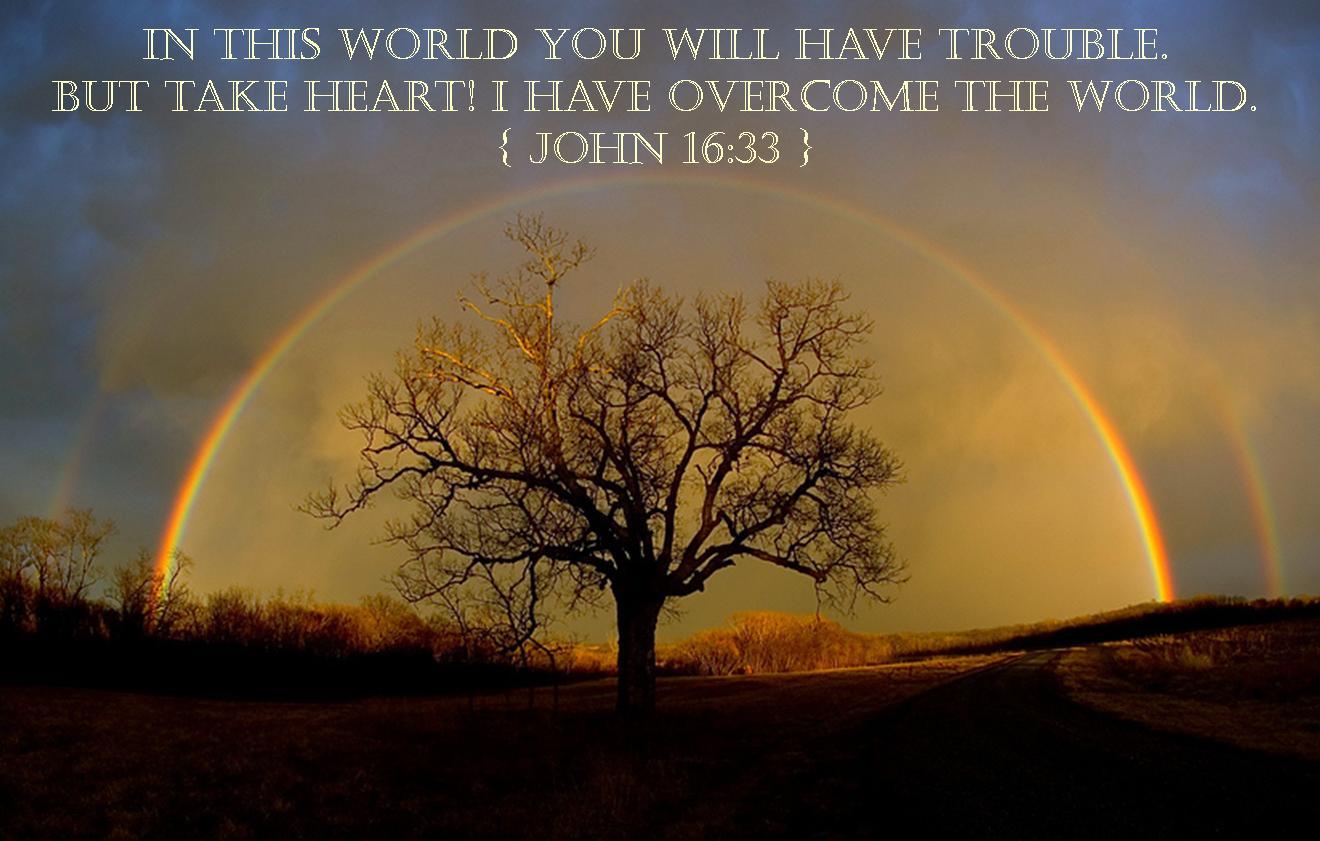Bethlehem Lutheran Church, Lebanon, OR
Sixth Sunday of Easter (Rogate) + May 26, 2019
Text: John 16:23-30
Sunday after Sunday, there are many parts of the liturgy that are the same. These parts are repeated, not because it sounds religious to repeat stuff, and not because the congregation is dull-witted and has to be told over and over. Every Sunday, we repeat these things because they’re important to always hold before us. One of these parts of the service is the Creed.
Week after week, we rehearse the words:
I believe in Jesus Christ…
who for us men and for our salvation came down from heaven
and was incarnate by the Holy Spirit of the virgin Mary
and was made man;
and was crucified also for us under Pontius Pilate.
He suffered and was buried.
And the third day, He rose again according to the Scriptures and ascended into heaven
and sits at the right hand of the Father.
This is actually why we gather for worship at all—because of what God has done through His Son. It is the foundation of our faith and our hope of eternal life. It’s also the bedrock upon which all true prayer is built. Jesus says, “In that day you will ask in my name, and I do not say to you that I will ask the Father on your behalf; for the Father himself loves you, because you have loved me and have believed that I came from God. I came from the Father and have come into the world, and now I am leaving the world and going to the Father.” Sounds like the Creed, doesn’t it? We pray to the Father on the basis of what His Son has done to make us children of God.
We know that the world is often looking for help. Whenever there is a tragedy, like the tornadoes and floods in Texas and Oklahoma, the fires in the summer, or a senseless act of violence, many offer the comfort that the victims are in their prayers. And it’s absolutely true that we need God’s help to recover from such disasters. On a personal level, people will pray for someone who is sick with a serious illness. And who better to ask for help than the Author of life?
But when people of the world ask for help, they’ve got other helps besides Jesus. For them, prayer is just a way to hedge your bets in case all other options are exhausted—medicine, science, and intoxication. It’s a last-ditch effort. In our pagan-infused society, prayer is one option among many—prayer along with horoscopes, tea leaves, psychics, reiki,[1] and sweathouses. It’s good to have a full toolbox, it seems to the world.
But prayer in the Name of Jesus is not just one option for help; it’s the only place that godly hearts look. Sometimes we come to it early, like the centurion whose servant was ill: “Lord, I am not worthy to have you come under my roof, but only say the word, and my servant will be healed.”[2] Sometimes we come later when we see God has taken everything away, like the woman with the flow of blood, “who had suffered much under many physicians, and had spent all that she had, and was no better but rather grew worse” and who said, “If I touch even his garments, I will be made well.”[3] The godly realize what Paul wrote to Timothy, “There is one God, and there is one mediator between God and men, the man Christ Jesus.”[4] As the hymn “Abide with Me” beautifully says, “When other helpers fail and comforts flee, Help of the helpless, O abide with me.”[5] So Jesus promises, “Whatever you ask of the Father in my name, he will give it to you.”
God will not tolerate our hearts being divided. He is a jealous God, because He is the only One who delivers us.[6] Are we struggling in our creaturely lives? He is the Creator who loves us and remembers that we are dust.[7] Do we grieve what has been taken from us? He is the God who can restore what is lost and give abundantly more.[8] But we cannot have it both ways—the way of the pagan world and the way of God’s children. “No one can serve two masters, for either he will hate the one and love the other, or he will be devoted to the one and despise the other.”[9] In our daily struggles of waiting, wanting, and longing, He refines us like silver so that we confess, “From where does my help come? My help comes from the Lord, who made heaven and earth.”[10]
A Pew Research study in 2012 found
that 76% of Americans agreed with the statement “prayer is an important part of
my daily life.”[11] This shows how much people want divine help. So, there are outlets for prayer—a National
Day of Prayer, the Presidential Prayer Breakfast, and community prayer services
in times of trouble. People come together
in droves, and they pour their heart out in prayer.
With all the focus on prayer, the verse 2 Chronicles 7:14 is often quoted: “if my people who are called by my name humble themselves, and pray and seek my face and turn from their wicked ways, then I will hear from heaven and will forgive their sin and heal their land.” If just enough people would get together and pray, what amazing things would happen! And it’s true…in part. But prayer is not effective because of our humility, or how sincerely we seek His face. It isn’t any more powerful if 1 or 1,000 pray for it. Prayer is about Who we are praying to.
The Lord said in 2 Chronicles, “My people who are called by My Name.” These are the ones He has called out of the nations and placed His Name upon them. Praying isn’t a privilege given to just anyone. It’s a gift given to those who bear God’s Name on their foreheads—the Name of the Father and of the Son and of the Holy Spirit. So, when Jesus says, “Whatever you ask of the Father in my Name, he will give it to you,” He’s saying that you have access to God as Father because you bear God’s Name. You are praying in your Baptism. You are children of God, which is why you can pray to Him and He answers.
There are three things that Jesus teaches us about prayer. “The Father himself loves you because you have loved me and have believed that I came from God.” First of all, God is not angry with you. “There is no condemnation for those who are in Christ Jesus.” This verse from Romans 8:1 is familiar but very important to remember. God’s Son has borne the wrath of God against all of your sins. All of God’s anger was on Him, so that a sinner like you would have God’s love forever.
So, when you pray, you don’t have to tiptoe and say, “Father, I just want this or that,” like He’s going to kick you out for asking too much. Think of this: He loves you more than even your earthly parents ever could. You will never annoy Him by praying too much. (In fact, He’d be tickled to have you call on Him so much!) “Love keeps no record of wrongs”[12]: He won’t hold a grudge against you for past sins. Remember, He has taken His anger and your sins away—as far as the east is from the west.[13] So, go right to Him with your prayers.
The next thing to remember is that your prayers don’t have to be anything fancy. “The Father himself loves you.” Simple or complex prayers don’t make a difference to Him. They don’t need to be crafted ahead of time like the Collect of the Day. One author explained it this way:
Instead of fearing and dreading God, we can approach God in prayer with confidence and love. Imagine that your child approached you and asked for the car keys. Which request would you listen to: “O Head of this house, you alone have the keys to the car. I humbly beseech thee to share them with me …” or “Daddy, could I please use the car?” Certainly, God is deserving of high and holy praise, but He also wants us to approach Him in love and intimacy.[14]
Sometimes our prayers don’t even have words, as Paul tells us in Romans 8, “The Spirit helps us in our weakness. For we do not know what to pray for as we ought, but the Spirit Himself intercedes for us with groanings too deep for words.”[15]
Finally, Jesus teaches us to pray for anything and everything. Pray when you’re going to the doctor’s office, and pray when you’re looking for a parking spot. Pray during a job interview, and pray when you’re looking for your lost keys. Your heavenly Father is listening. It doesn’t matter if other people think you’re foolish for praying for such things. They aren’t listening in! “Whatever you ask of the Father in my name, he will give it to you.” Ask even for your loved ones back from the dead and He will answer.
Finally, our Lord tells us that we will be driven to prayer by what
happens in life: “Do you now believe?…I
have said these things that in me you may have peace. In the world you will
have tribulation. But take heart; I have overcome the world.” The tribulations that happen to dear
children of God prompt us to run to our heavenly Father. In the fire of those trials, He wills peace
for you. Even if there’s no sign of
peace outwardly, He will strengthen your faith so that it becomes mature. It matures from being a faith in the mouth to
being a firmer faith in the heart. Yes,
we confess our faith week in and week out, and that is good and right, because
in every change and chance of this life, the God we go to in prayer is always
the same, always loving, and always faithful.
Amen.
[1] http://www.reiki.org/faq/whatisreiki.html – A pagan healing technique based on pagan beliefs about the human body
[2] Matthew 8:8
[3] Mark 5:26, 28
[4] 1 Timothy 2:5
[5] LSB 878, stanza 1
[6] Psalm 33:16-18
[7] Psalm 103:14
[8] Job 42:10-17
[9] Matthew 6:24
[10] Psalm 121:1b-2
[11] http://www.pewresearch.org/fact-tank/2014/05/01/5-facts-about-prayer/
[12] 1 Corinthians 13:5 NIV
[13] Psalm 103:12
[14] Engelbrecht, Edward A. (2010-07-02). The Lutheran Difference: An Explanation & Comparison of Christian Beliefs (Kindle Locations 2291-2294). Concordia Publishing House. Kindle Edition. (p 96)
[15] Romans 8:26





